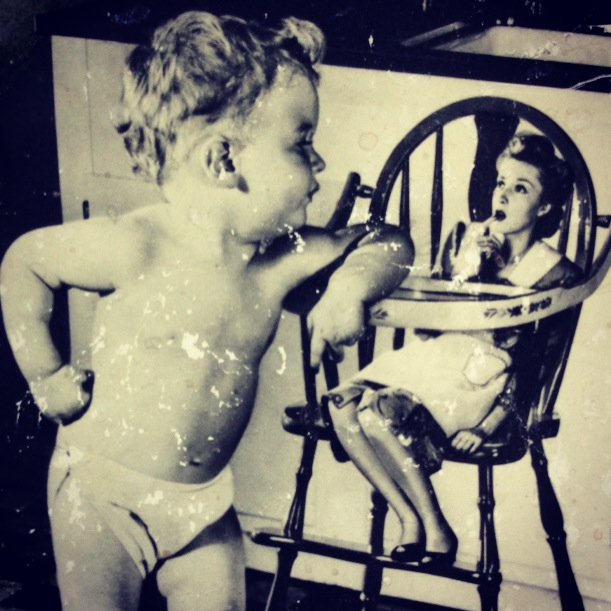
January 10, 2013 4:48 pm We’ve All Been There
A little boy is at his mother’s feet in the play yard, slapping her shiny boots with a muddy stick. She is talking to another mother about summer camp ideas. Children are running and laughing close by. An unexpected and welcome surprise of warm weather in the middle of winter provides mothers a chance to socialize while their children are playing.
The shiny boots aren’t shiny any more. The little boy means business. His mother tries to laugh off his behavior when mud is flung on her hand. Feeling embarrassed, she says, “Oh, you just didn’t get enough sleep last night, did you, honey?” A small muddy hand slaps her blue coat. The boy looks at her, thinking about what to do next. The other mother politely leaves the scene just before the boy kicks his mother’s jeans.
“Let’s GO!” The boy’s mother says, “Honey, are you hungry? I have a special snack in the car.” They leave with the boy running ahead, ignoring his mother’s calls to wait.
What went wrong here? Could the situation have been saved?
What if the little boy and his mother had started this time with a few uninterrupted minutes? What if the mother had stopped her child immediately when he started flinging mud? What if she had excused herself from the summer camp conversation as soon as she saw her son’s unhappiness? Is flinging mud and running ahead ever fine?
Mothers are in situations like this too often. We make allowances and excuses for our children all of the time. We set ourselves up for the escalation of mud flinging and disobedience and hurt feelings because we don’t realize the root of the behavior. We are learning by the seat of our pants and from our mistakes.
Learning becomes more possible as we pay closer attention. We realize a tired child, looking forward to close time with his mother, doesn’t want her to get into a long term conversation with another adult, doesn’t want a smaller sibling to share the time. Yet this understanding cannot be an excuse for bad behavior. Take the boy out of the situation as soon as it becomes apparent that nothing good is going to happen. Don’t let the behavior escalate. Constant and consistent messages about what is acceptable behavior make a difference and provide comforting guidelines for a child.
Written by: Anne Martine Cook, Managing Partner & Mom, with 35+ years experience teaching nursery school children.
We welcome your comments and questions.


